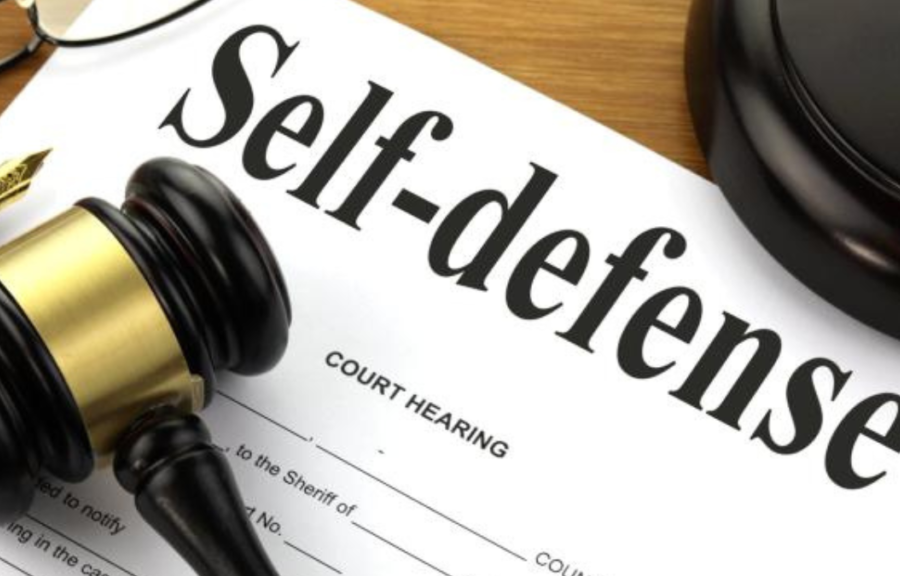INTRODUCTION
The right of self – defense is a right of a private individual to protect himself against any imminent harm to either to his property or body. This right of the person is also a recognized legal right by statutes. The Indian Penal Code enshrines the provision for the right of self – defense. the right is also duly recognized in the English law. The right of self-defense is covered in a very wide scope in the laws. It includes the protection to property as well as body. Due to this, it is covered in criminal law as well as law of torts.
SELF – DEFENSE
The right of private defense dates back to early times. People had always protected their property and body in case they see any harm being caused to their things. The right of self – defense is generally referred to as right to private defense. Main aim of providing this right is to minimize the harm being caused to the person on whom the offence against body or property is caused.
The right of self – defense at its base avoids the liability of a person that may be accused of harming some other person, provided that some injury (or an immediate injury) has been caused to the person. The right of self – defense is also protected in the Indian Constitution under Part III of the Indian Constitution. The courts have interpreted the right to life in the scope of right to private defense also. They accept the importance of protecting one self’s rights against the world. The Indian law has explicitly protected the right in the Indian Penal Code under section 96 of the Act. The provisions from section 96-98 deal with right of private defense.
Section 96 reads, “Nothing is an offence which is done in the exercise of the right of private defense.”
Section 97 of the Act allows any person to defend himself from any harm to body or property. However, this section is subject to the provisions of section 99 that provides the situations when the right of private defense cannot be invoked.
Section 98 provides the right of self – defense against a person of unsound mind or other persons who cannot understand the nature of the act at the time of commencement of the act although the act is not an offence.
ESSENTIALS FOR SELF DEFENSE
There are 2 basic essentials to constitute the defense of right of private defense:
- Imminent and Reasonable Apprehension: a very basic need to establish the right of self defense is that there should be an imminent and reasonable apprehension of harm. The apprehension should be reasonable that may create a reflex action on the part of the person being harmed. The fear should be genuine, and likely to be caused by the harm that may be caused by the act of the offender.
- Proportionality of Force: force used by the person to protect or defend themselves should be proportionate to the act of the other person and the harm that can be caused by the act of the other person. Use of excessive force does not constitute the right of private defense.
The right of self – defense commences from the time the fear of some imminent harm begins and ends when the harm gets over. Thus, it is to be taken into consideration when the right can be invoked or not.
Section 99 of Indian Penal Code provides the situations when the right of self defense cannot be invoked. Following are the conditions when it cannot be invoked:
No Reasonable Apprehension: if the act of the other person does not cause some level of reasonable apprehension then the person cannot use the right of private defense against that act of the other person.
Pubic Servant: if the act that may cause harm is done by a public servant while exercising his legal authority then the right of private defense cannot be invoked against them. However, it is required that the person should be acting in good faith of his powers.
Time for police protection: if the person knew of the harm well before in time and did not seek police prosecution then the defense of right of private defense cannot be invoked by that person since he had sufficient time to safeguard himself with legal authorities.
CONCLUSION
The right of private defense is an essential defense to justify oneself for the acts that may constitute an offence, however, due to necessity of the circumstances of the case he had to act in such a manner. Every right is however, subject to certain conditions. Similarly, this right is also not absolute. The right of self – defense thus must be substantiated by reasonable causes. The right of private defense is covered under the English law and the Indian law and thus is an essential defense for parties.
Contributed by – Ishita Saxena
Symbiosis Law School, Noida (2023 – 28)


I really appreciate this post. I have been looking everywhere for this! Thank goodness I found it on Bing. You have made my day! Thanks again